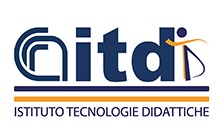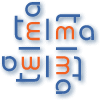This European Research Team (ERT) brings together six different teams from around Europe that have a strong research background in the field of Technology Enhanced Learning in Mathematics. Its main aims are:
- cross fertilization arising from integration efforts;
- building a shared view of key research topics in the area of ICT and maths education, and proposing related research actions;
- identifying new "European" ways to train researchers in the field;
- identifying integrated approaches to the study, design and analysis of innovative learning environments for maths education.
As recent OECD data show, European educational systems are performing unevenly in the area of maths education, and are exhibiting serious weaknesses. ICT can offer new opportunities in this area:
- new ways to give meaning to mathematics concepts;
- new learning situations that embed technological tools;
- new kinds of learning strategies (such as inquiry, collaborative construction of meaning, etc);
- new ways to make these opportunities more accessible to schools.
TELMA focuses on three areas:
- representation systems (mathematical knowledge can be approached through the exploration and manipulation of various representation forms: visual, motor, perceptive, etc);
- learning contexts (it is not just the use of technological tools that matters, but rather the learning situations and contexts in which those tools are used);
- learning theories (exploring the connections and complementarities that teams share, and exploiting this potential to improve the quality of research).
Significant outputs
Comparative analysis of team approaches mostly focusing on the different ways the teams use representations as keys to abstract knowledge and on the ways they have used their representation tools in context (Deliverables D20.2.1 and D20.3.1). A more general analysis (IPTA “Integrated Presentation of Teams Activities”) is available from the ERT web site (http://telma.noe-kaleidoscope.org/research/IPTA/).
Joint experimental research was developed were a number of students and young researchers have been involved in the design of a comparative experimentation effort to compare the three maths education software products developed and implemented by the three TELMA groups. This research brought to the development of a methodology for integrating theoretical frameworks and for developing joint experimental researches. One of the basis of such methodology is the construct of “Didactical Functionality” developed by ITD members of TELMA (see http://telearn.noe-kaleidoscope.org/open-archive/browse?resource=424_v1&back=/open-archive/browse?browse=collection/all/publication¶m=28).
Significative publications, reporting the main results are available on Telearn (http://telearn.noe-kaleidoscope.org/), the Kaleidoscope’s publications archive, within a section dedicated to TELMA papers: http://telearn.noe-kaleidoscope.org/open-archive/browse?browse=collection/all/publication¶m=28
ITD member presented TELMA results at ERME conferences (http://ermeweb.free.fr/) and at the Kaleidoscope Workshop (http://www.noe-kaleidoscope.org/group/symposium/programme/).
Collaborations
The international partners collaborating with ITD in TELMA are:
- Educational Tech Lab – NKUA, Athens (http://telma.noe-kaleidoscope.org/teams/etl/);
- MeTAH - Leibniz – IMAG, Grenoble (http://telma.noe-kaleidoscope.org/teams/metah/);
- Institute of Education – UNILON, London (http://telma.noe-kaleidoscope.org/teams/unilon/);
- DIDIREM - Paris VII (http://telma.noe-kaleidoscope.org/teams/didirem/);
- University of Siena (http://telma.noe-kaleidoscope.org/teams/siena/).

 Italiano (Italia)
Italiano (Italia)
